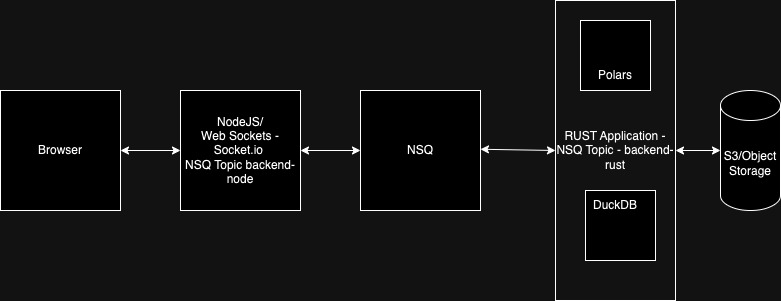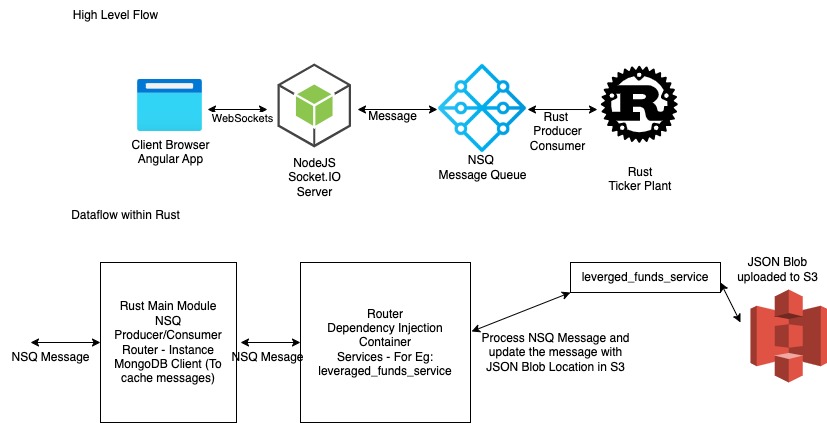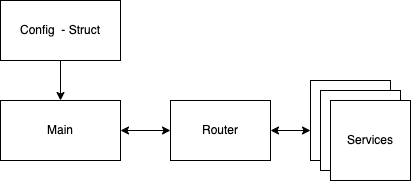Use Case
Historical Ticker Plant
- Store historical daily and intraday asset quotes and trades data
- Use Polars and DuckBD to perform various analytics on the data
Tools Used
- Polars
- Duck DB
Dataflow Diagram

Session 1
Topics Discussed
- Rust Application Setup
- Interaction between NSQ and Rust Application (Demo)
Video explanation
Source Code
https://github.com/sravzpublic/training/tree/master/training-rust/sravz
Session 2
Dataflow Diagram

Topics Discussed
- Ticker plant internal components
- Main Module
- Router
- Services
- Demo of Leveraged Funds service usage
Video explanation
Source Code
Session 3
Dataflow Diagram

Topics Discussed
- Py03 integration
- Pass polars dataframe to Python
- Review matplotlib output
Video explanation
Source Code
Session 4
Dataflow Diagram

Topics Discussed
- Config struct to parse environment variables
- Ticker plant send the output on the NSQ backend-node topic
Video explanation
Session 5
Dataflow Diagram

Topics Discussed
- Demo:
- Angular UI sends a message to the backend-node over socket.io websockets
- Backend-node server receives the message on the socket.io websocket
- Backed-node sends the message to NSQ Server on the backend-rust topic
- Backend-rust receives the message on the NSQ Server backend-rust topic
- Backend-rust process the message
- Backend-rust send the response to NSQ Server on the backend-node topic
- Backend-node receives the response message on the backend-node topic
- Backend-node sends the response message on WebSocket Socket.IO to Angular UI
- Angular UI Debug Console shows the message received from the backend-rust
- Added config.toml support to pass extra config data to backend-rust
- Removed .expect and .unwrap usage which cause panics
- Use match pattern to match enun result pattern
- Error handling using
Box<dyn Error>





